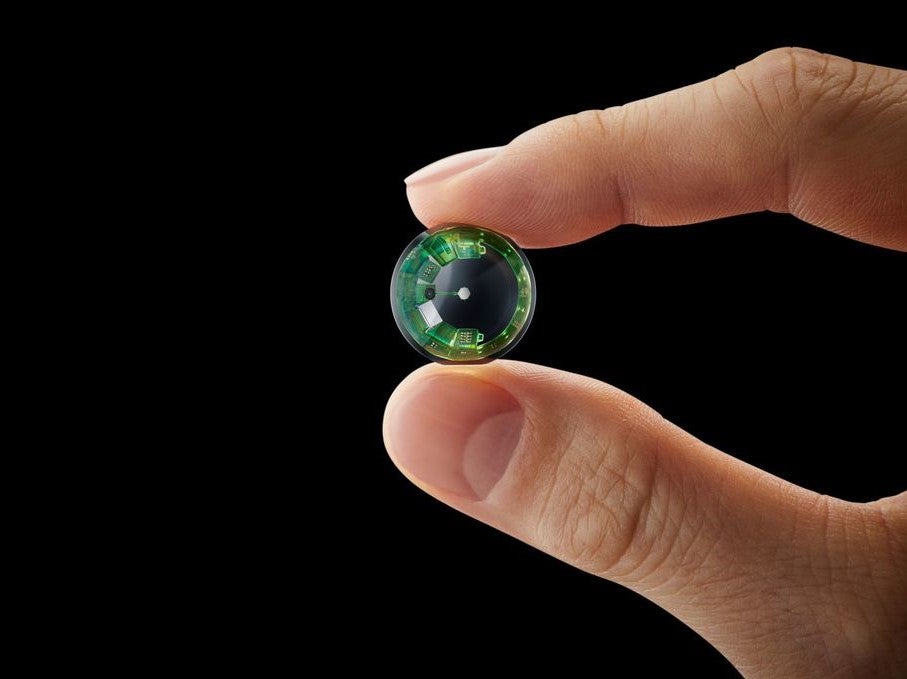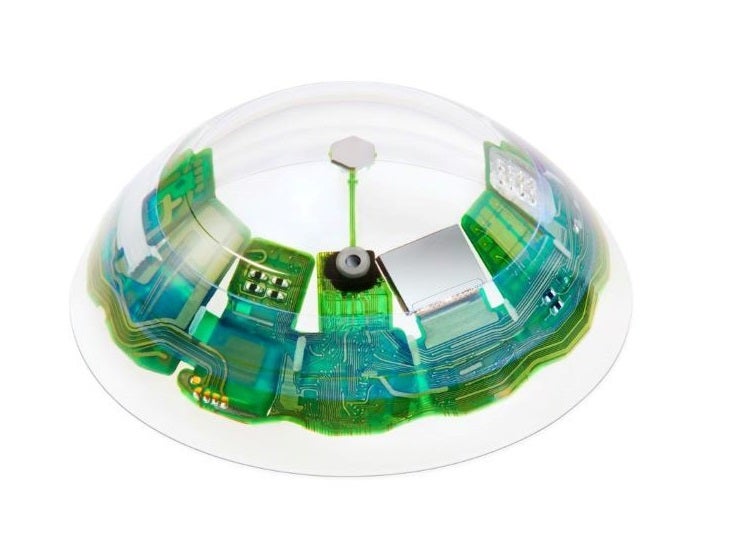World’s first ‘in-eye test’ of smart contact lens puts display on wearer’s eyeball
Mojo Vision CEO says he ‘saw the future’

Your support helps us to tell the story
From reproductive rights to climate change to Big Tech, The Independent is on the ground when the story is developing. Whether it's investigating the financials of Elon Musk's pro-Trump PAC or producing our latest documentary, 'The A Word', which shines a light on the American women fighting for reproductive rights, we know how important it is to parse out the facts from the messaging.
At such a critical moment in US history, we need reporters on the ground. Your donation allows us to keep sending journalists to speak to both sides of the story.
The Independent is trusted by Americans across the entire political spectrum. And unlike many other quality news outlets, we choose not to lock Americans out of our reporting and analysis with paywalls. We believe quality journalism should be available to everyone, paid for by those who can afford it.
Your support makes all the difference.The boss of a smart contact lens startup claims to have performed the first ever successful “on-eye demonstration” of the technology.
Mojo Vision CEO Drew Perkins said he “saw the future” when he tried on the prototype lens, which contains a 14,000 pixel-per-inch Micro LED display.
Measuring less than 0.5mm in diameter, the California-based company describes it as the world’s smallest and densest display ever created for dynamic content.
The lenses also contain a computer processor, micro-batteries, an accelerometer, gyroscope and magnetometer to track eye movements and keep the augmented reality (AR) display stable.
The eye tracking hardware also allows wearers to control the display and access content without external controllers.
“To have optics, electronics, mechanical systems, and software all operating at the same time – and seeing it happen – was a historic achievement,” Mr Perkins wrote in a blog post describing his experience wearing the lens.
“This represents a major step towards the potential for Mojo Lens to improve the lives of millions of people... I experienced firsthand the future with Invisible Computing.”
Demonstrations of the next-generation wearable technology included viewing images, interacting with a compass to figure out which direction he was facing, and reading an on-screen teleprompter to read text.
Mojo Vision now plans to keep developing and testing the tech in order to submit an application to the US Food and Drug Administration (FDA) for market approval.
Eventually, the firm hopes to collaborate with app developers to create new software for the wearable, such as training apps for athletes or visual assistants for people with vision impairments.
There is no release date set yet for the Mojo Lens, though Mr Perkins’ blog appeared to suggest that they would be ready for consumers within the next 10 years.

Other startups working on the technology have focussed on different capabilities, such as InWith, which aims to offer wearers “tunable vision” that can be controlled via a companion smartphone app.
The product being developed by InWith, which is also based in California, could also provide people with easy access to virtual worlds within the metaverse.
The electronics involved could also be retrofitted into existing contact hydrogel lenses if it receives FDA approval.

Join our commenting forum
Join thought-provoking conversations, follow other Independent readers and see their replies
Comments